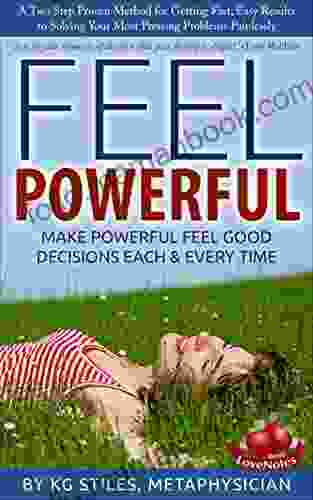The Art and Science of Person-Centered Care

Person-centered care is a healthcare delivery model that focuses on the individual needs and preferences of patients. It is based on the belief that every patient is unique and that their care should be tailored to their specific circumstances. Person-centered care is not a new concept, but it has gained increasing attention in recent years as the healthcare system has become more complex.
There are many benefits to person-centered care, including:
4.7 out of 5
| Language | : | English |
| Text-to-Speech | : | Enabled |
| Enhanced typesetting | : | Enabled |
| File size | : | 574055 KB |
| Screen Reader | : | Supported |
| Print length | : | 6080 pages |
- Improved patient outcomes
- Increased patient satisfaction
- Reduced costs
- Improved provider morale
Person-centered care is not simply a matter of being nice to patients. It requires a fundamental shift in the way healthcare is delivered. Providers must be willing to take the time to get to know their patients and understand their individual needs. They must also be willing to share decision-making with patients and involve them in their own care.
There are many ways to implement person-centered care in practice. Some common strategies include:
- Using patient-centered language
- Providing patients with information about their condition and treatment options
- Involving patients in decision-making about their care
- Respecting patients' values and preferences
- Tailoring care to the individual needs of patients
Person-centered care is not always easy, but it is essential to providing high-quality healthcare. By taking the time to get to know their patients and understand their individual needs, providers can improve patient outcomes, satisfaction, and reduce costs.
The Principles of Person-Centered Care
The principles of person-centered care are based on the belief that every patient is a unique individual with their own values, beliefs, and experiences. These principles include:
- Respect: Patients should be treated with respect and dignity, regardless of their age, race, ethnicity, gender, sexual orientation, or disability.
- Compassion: Healthcare providers should be compassionate and understanding of the challenges that patients face.
- Collaboration: Patients and healthcare providers should work together to make decisions about the patient's care.
- Individualization: Care should be tailored to the individual needs of each patient.
- Empowerment: Patients should be empowered to take an active role in their own care.
These principles are essential to providing high-quality person-centered care. When providers follow these principles, they can create a positive and supportive environment for patients, which can lead to better outcomes.
The Benefits of Person-Centered Care
There are many benefits to person-centered care, including:
- Improved patient outcomes: Studies have shown that person-centered care can lead to improved patient outcomes, such as reduced pain, shorter hospital stays, and improved quality of life.
- Increased patient satisfaction: Patients who receive person-centered care are more likely to be satisfied with their care and more likely to recommend their provider to others.
- Reduced costs: Person-centered care can lead to reduced costs by preventing unnecessary tests and procedures and reducing the length of hospital stays.
- Improved provider morale: Healthcare providers who practice person-centered care report higher levels of job satisfaction and lower levels of burnout.
These benefits are significant and can make a real difference in the lives of patients and providers.
The Challenges of Person-Centered Care
While there are many benefits to person-centered care, there are also some challenges to implementing this model of care. These challenges include:
- Time constraints: Healthcare providers often have limited time to spend with each patient, which can make it difficult to provide individualized care.
- Resource constraints: Healthcare providers may not have the resources they need to provide person-centered care, such as access to interpreters, social workers, and other support staff.
- Provider training: Healthcare providers may not be trained in the principles of person-centered care and may need additional training to effectively implement this model of care.
These challenges are real and can make it difficult to implement person-centered care. However, it is important to remember that the benefits of person-centered care are significant and that it is worth investing the time and resources to overcome these challenges.
Person-centered care is a healthcare delivery model that focuses on the individual needs and preferences of patients. It is based on the belief that every patient is unique and that their care should be tailored to their specific circumstances. Person-centered care has many benefits, including improved patient outcomes, increased patient satisfaction, reduced costs, and improved provider morale. While there are some challenges to implementing person-centered care, these challenges can be overcome with the right investment of time and resources.
The art and science of person-centered care is a complex and ever-evolving field. However, by following the principles of respect, compassion, collaboration, individualization, and empowerment, healthcare providers can provide high-quality care that meets the unique needs of each patient.
4.7 out of 5
| Language | : | English |
| Text-to-Speech | : | Enabled |
| Enhanced typesetting | : | Enabled |
| File size | : | 574055 KB |
| Screen Reader | : | Supported |
| Print length | : | 6080 pages |
Do you want to contribute by writing guest posts on this blog?
Please contact us and send us a resume of previous articles that you have written.
 Top Book
Top Book Novel
Novel Fiction
Fiction Nonfiction
Nonfiction Literature
Literature Paperback
Paperback Hardcover
Hardcover E-book
E-book Audiobook
Audiobook Bestseller
Bestseller Classic
Classic Mystery
Mystery Thriller
Thriller Romance
Romance Fantasy
Fantasy Science Fiction
Science Fiction Biography
Biography Memoir
Memoir Autobiography
Autobiography Poetry
Poetry Drama
Drama Historical Fiction
Historical Fiction Self-help
Self-help Young Adult
Young Adult Childrens Books
Childrens Books Graphic Novel
Graphic Novel Anthology
Anthology Series
Series Encyclopedia
Encyclopedia Reference
Reference Guidebook
Guidebook Textbook
Textbook Workbook
Workbook Journal
Journal Diary
Diary Manuscript
Manuscript Folio
Folio Pulp Fiction
Pulp Fiction Short Stories
Short Stories Fairy Tales
Fairy Tales Fables
Fables Mythology
Mythology Philosophy
Philosophy Religion
Religion Spirituality
Spirituality Essays
Essays Critique
Critique Commentary
Commentary Glossary
Glossary Bibliography
Bibliography Index
Index Table of Contents
Table of Contents Preface
Preface Introduction
Introduction Foreword
Foreword Afterword
Afterword Appendices
Appendices Annotations
Annotations Footnotes
Footnotes Epilogue
Epilogue Prologue
Prologue Vicki S Napper
Vicki S Napper Donna Leon
Donna Leon Randy Brown
Randy Brown Djordje Savanovic
Djordje Savanovic Christina Tosi
Christina Tosi Leighann Stanczyk
Leighann Stanczyk Iain Mcgilchrist
Iain Mcgilchrist Arthur Byrd
Arthur Byrd Margaret Combs
Margaret Combs Noah William Smith
Noah William Smith Foong Kwin Tan
Foong Kwin Tan Gayle Van Horn
Gayle Van Horn Jeffrey S Lantis
Jeffrey S Lantis John Flanagan
John Flanagan Guthrie Taylor
Guthrie Taylor Lucy Ashford
Lucy Ashford Johann Hari
Johann Hari Dennis Charles
Dennis Charles Scarlett Mcleod
Scarlett Mcleod Nina Sattler Hovdar
Nina Sattler Hovdar
Light bulbAdvertise smarter! Our strategic ad space ensures maximum exposure. Reserve your spot today!

 Cortez ReedWe Inherit What the Fires Left: A Haunting Exploration of Identity, Trauma,...
Cortez ReedWe Inherit What the Fires Left: A Haunting Exploration of Identity, Trauma,... Esteban CoxFollow ·17.7k
Esteban CoxFollow ·17.7k Isaiah PriceFollow ·5.7k
Isaiah PriceFollow ·5.7k Max TurnerFollow ·19.5k
Max TurnerFollow ·19.5k Heath PowellFollow ·12.8k
Heath PowellFollow ·12.8k Gary ReedFollow ·7k
Gary ReedFollow ·7k Robin PowellFollow ·5.8k
Robin PowellFollow ·5.8k Octavio PazFollow ·6.4k
Octavio PazFollow ·6.4k Javier BellFollow ·18.3k
Javier BellFollow ·18.3k

 Dean Cox
Dean CoxHow to Make Decisions Easily & Effortlessly: The...
The Different Types of Decisions There...

 Gustavo Cox
Gustavo CoxThe End of World War II and the Birth of Baseball's...
The end of...

 Patrick Rothfuss
Patrick RothfussThe Dantes: An 11-Family Saga of Billionaires, Soulmates,...
The Dantes is an epic family saga that follows...

 Dylan Mitchell
Dylan MitchellSuper Friends: The Animated Adventures That Defined a...
In the vibrant landscape of American...

 Jamal Blair
Jamal BlairCollege For Students With Disabilities: We Do Belong
College can be a...
4.7 out of 5
| Language | : | English |
| Text-to-Speech | : | Enabled |
| Enhanced typesetting | : | Enabled |
| File size | : | 574055 KB |
| Screen Reader | : | Supported |
| Print length | : | 6080 pages |












